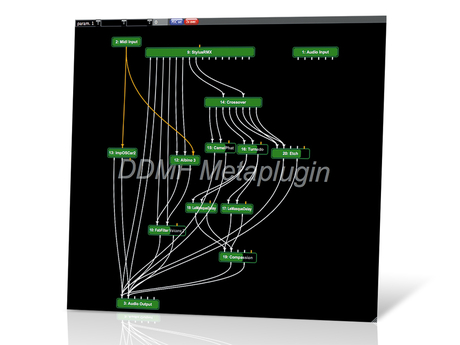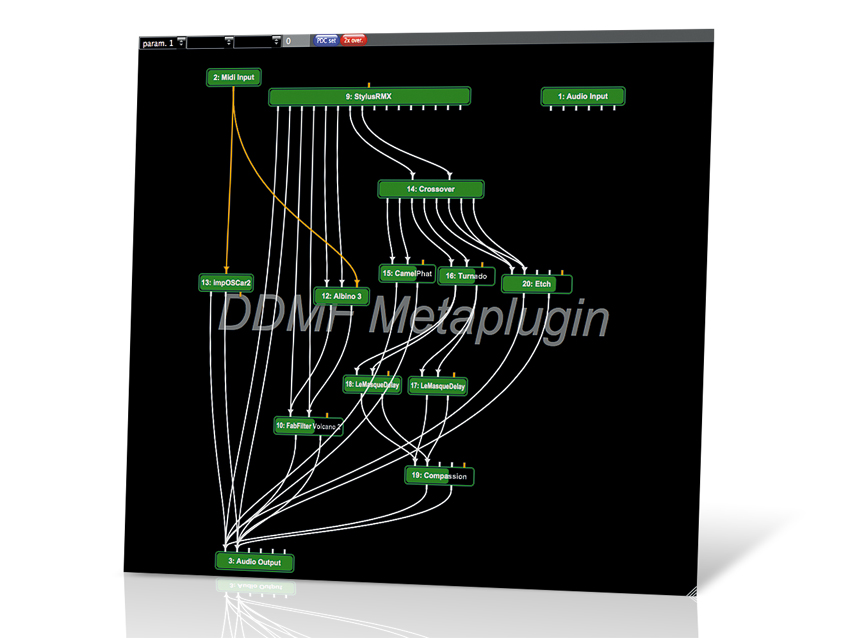Meet the programmers: DDMF


Christian Siedschlag is the founder of plug-in developers DDMF, the company behind apps like IIEQPro, LP10 and Metaplugin. Computer Music caught up with him recently to chat about his background and get geeky about EQ.
What did you do before DDMF? And what does DDMF stand for?
"I was in research for quite a while. I did a PhD in atomic physics and actually learned programming by simulating the behaviour of atoms and electrons. But I found that the academic environment was not for me in the long run, and I was in the lucky position to have a former hobby project (DDMF) that had, in the span of four or five years, grown to a point where I could make a living from it.
"I never gave the name much thought, to be honest... an old nickname of mine was 'DocDued', so I simply called it DocDued's Music Factory. There you go!"
Your initial business model was donationware, ie, 'pay what you like'. Now you've settled on affordable fixed prices. Why the change?
"The donationware model was definitely very well received, and as long as I only had IIEQPro and LP10 on sale, the average price was almost $15! But then I found that this price declined proportionally to the number of products I offered, so when I had six products, the average price had gone down to $5. People still paid the same total amount but got more for the money, which, unfortunately, is not a good way for a small company to grow."
DDMF is well-known for its excellent equalisers. What do you see for the future of EQ plug-ins?
"I think we will see mainly improvements in handling and interaction. The 'clean' part of EQ DSP design is pretty much covered now, but there's still room for nonlinear behaviour. And I think EQs that adapt themselves in an intelligent way to the material at hand could be an interesting direction, like a 'master EQ' that acts on several tracks and decides what to boost or to cut in order to make the whole thing sound as good as possible."
What's the biggest misunderstanding when it comes to EQ plug-ins?
"I think a few years ago it was very easy to take a stock-standard algorithm, slap a nice GUI on it and sell it for a premium price. Users have become much more critical now, and I like to see DDMF as a part of the development.
"So the general level of education concerning EQs is pretty high now, and indeed, people have used tools like Christian Budde's plug-in analyser to find that the frequency responses of many EQs can be made to look pretty identical. One should be a little careful because the ear is more sensitive than the eye, and nonlinearities are not discovered in that way. But yeah, never underestimate the power of psychoacoustics!"
Want all the hottest music and gear news, reviews, deals, features and more, direct to your inbox? Sign up here.
What's next from DDMF?
"Well, I've mentioned the vocoder so many times it's become sort of a running gag, but I still want to do it! Then, a modular delay à la Metaplugin (where delay lines aren't possible for design reasons) with the possibility to load third-party plug-ins into any feedback line.
"Also I'm investigating the possibilities of EQ'ing only certain parts of the stereo field, like 'a little less mid-range between 12 and 3 o'clock'. I've also started to explore the mobile world, which is a different animal but highly interesting and fun nonetheless."


Computer Music magazine is the world’s best selling publication dedicated solely to making great music with your Mac or PC computer. Each issue it brings its lucky readers the best in cutting-edge tutorials, need-to-know, expert software reviews and even all the tools you actually need to make great music today, courtesy of our legendary CM Plugin Suite.
